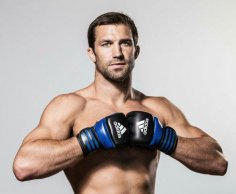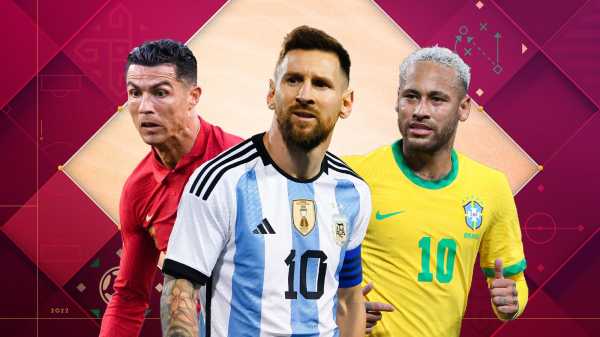
Sky Sports selects eight talking points that could define the World Cup, from the stars likely gracing their final tournament to a replay of one of the most infamous matches in the competition’s history.
End of an era in Qatar
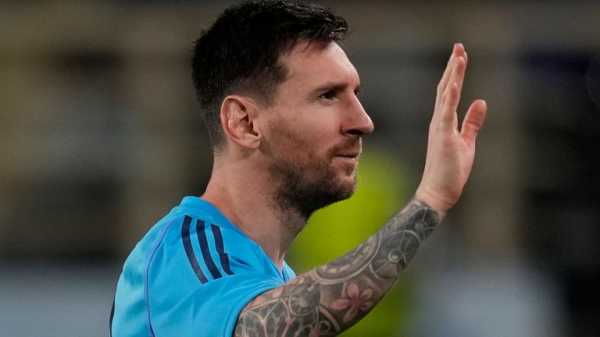
Image: At 35 years of age, Lionel Messi is likely playing in his last World Cup
A footballing era, the like of which we will be lucky to see again, will come to an end in Qatar, as a host of icons are braced for what will likely be their final appearance at a World Cup.
- World Cup 2022 schedule, teams and draw
- World Cup team guides
- World Cup 2022: All 32 squads
Ever since Germany 2006, Cristiano Ronaldo and Lionel Messi, the standout players of their generation, have been the undisputed poster boys for all the tournaments that have followed.
Despite the diminishing powers of the respective 37 and 35-year-olds, Qatar 2022 is no different, with the prospect of either Ronaldo or Messi cementing their legacy as the game’s greatest at the expense of their eternal rival a fascinating one.
Who could be playing their final World Cup?
| Player | Country | Age |
| Lionel Messi | Argentina | 35 |
| Cristiano Ronaldo | Portugal | 37 |
| Neymar | Brazil | 30 |
| Dani Alves | Brazil | 39 |
| Thiago Silva | Brazil | 38 |
| Luka Modric | Croatia | 37 |
| Thomas Muller | Germany | 33 |
| Robert Lewandowski | Poland | 34 |
| Kevin De Bruyne | Belgium | 31 |
| Karim Benzema | France | 34 |
Ronaldo and Messi are not the only familiar faces set for a World Cup farewell. At the age of 39, Brazil’s Dani Alves and Portugal’s Pepe will surely grace the tournament for the final time, as will 38-year-old Thiago Silva, 37-year-old Luka Modric, 36-year-old Manuel Neuer and Olivier Giroud, and Luis Suarez, Edinson Cavani and Hugo Lloris, who are all 35.
Trending
- Ronaldo on Man Utd: ‘It’s hard when they cut your legs’ | ‘Happy’ if Arsenal win PL
- Grand Slam of Darts LIVE! MVG vs Rock headlines with Aspinall & Clayton also playing
- World Cup 2022 schedule, teams and draw
- Transfer Centre LIVE! Ronaldo: I’ve had offers | Turned down €350m Saudi deal
- Verstappen hits out at media and abuse after Perez snub | ‘It’s unacceptable’
- Ronaldo interview reveals his failure to accept his own decline
- Neville: No way back for Ronaldo at Man Utd but I’m not against him
- Senegal’s Mane to miss World Cup | Bayern forward has ‘successful’ surgery
- FSG have received ‘a lot of interest’ in potential Liverpool investment
- Every World Cup squad named
- Video
- Latest News
With France striker Karim Benzema, Spain midfielder Sergio Busquets and Poland forward Robert Lewandowski all 34-years-old, and Germany forward Thomas Muller 33, the list of players potentially appearing on the world stage for the last time is as lengthy as it is illustrious.
Whether this might be Kevin De Bruyne’s or Neymar’s last World Cup remains to be seen, but make no mistake, international football will be left with a void which could take another generation to fill.
Also See:
Enjoy it while it lasts.
Jack Wilkinson
What remains of Belgium’s ‘Golden Generation’?
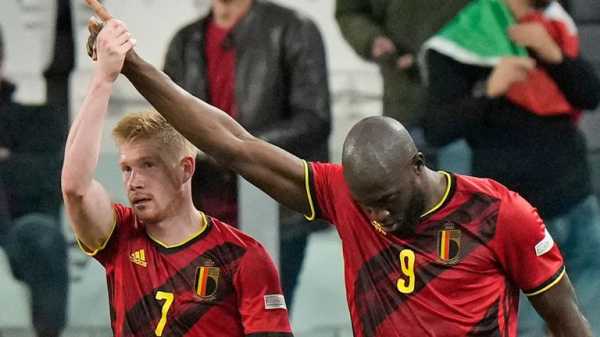
Image: Kevin De Bruyne (left) and Romelu Lukaku are going to their third World Cup with Belgium
Like England fans, Belgium supporters know what it’s like to witness a ‘Golden Generation’ be biannually tipped as major tournament winners, only to see them consistently fail to meet those lofty expectations.
Heading into the 2014 World Cup – their first for 12 years – Belgium were expected to make a significant impression. Thibaut Courtois, Kevin De Bruyne, Romelu Lukaku and Eden Hazard were all under 23 years of age and looked ready to establish themselves as starts of European football, while Vincent Kompany, Toby Alderweireld, Thomas Vermaelen, Jan Vertonghen, Axel Witsel, Marouane Fellaini, Dries Mertens and Mousa Dembele helped to pack the squad with talent.
But, perhaps weighed down by expectations, Belgium underwhelmed throughout the tournament before eventually falling in the quarter-finals. Marc Wilmots oversaw another last-eight exit at Euro 2016 before being replaced by Roberto Martinez, who guided Belgium to victory over Brazil in the 2018 World Cup quarter-finals.
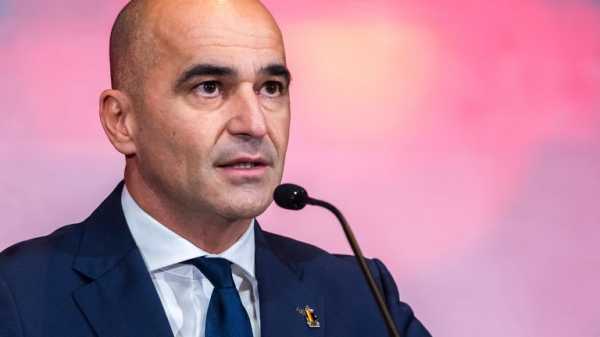
Image: Roberto Martinez took charge of Belgium in 2016
That win was supposed to be the moment the Golden Generation showed they were turning their undoubted potential into long-awaited success, but they then fell limply to France in the semi-finals before going backwards at Euro 2020, where they again fell in the last eight.
Martinez’s side may remain second in the FIFA world rankings but their results since Euro 2020 have been mixed, with a 4-1 home defeat to the Netherlands in June standing out as particularly damaging.
Who remains from Belgium’s 2014 World Cup squad?
| Player | Age | Caps | Club |
|---|---|---|---|
| Thibaut Courtois | 30 | 96 | Real Madrid |
| Toby Alderweireld | 33 | 123 | Royal Antwerp |
| Jan Vertonghen | 35 | 141 | Anderlecht |
| Axel Witsel | 33 | 126 | Atletico Madrid |
| Kevin De Bruyne | 31 | 93 | Manchester City |
| Eden Hazard | 31 | 122 | Real Madrid |
| Romelu Lukaku | 29 | 102 | Inter Milan (on loan from Chelsea) |
| Simon Mignolet | 34 | 35 | Club Brugge |
| Dries Mertens | 35 | 106 | Galatasaray |
Consequently, Belgium enter the 2022 World Cup with the sense that, like England more than 10 years ago, their Golden Generation has missed its shot at glory. Kompany, Dembele, Vermaelen and Fellaini have moved on, while Hazard, Mertens and Witsel are past their primes.
The presence of De Bruyne and Courtois – possibly the best in the world in their positions – as well as Lukaku shows Belgium remain a side to be taken seriously. But the fact that Alderweireld and Vertonghen – with a combined age of 68 and 264 caps between them – are not only still in the squad but remain regular starters under Martinez is a cause for concern.
Datawrapper Due to your consent preferences, you’re not able to view this. Open Privacy Options
In total, more than a third of Martinez’s 26-man squad for the 2022 World Cup were also part of the 2014 campaign. At best, that presents the manager with a squad rich in experience; but at worst, it demonstrates a group of players that have grown old together and whose successors are not yet able or trusted to replace them.
Belgium should progress from a group containing Croatia, Morocco and Canada, but a potential last-16 tie with either Spain or Germany could finally spell the end for their nearly men.
Joe Shread
Ecuador aiming to seize World Cup chance after curious case of Castillo
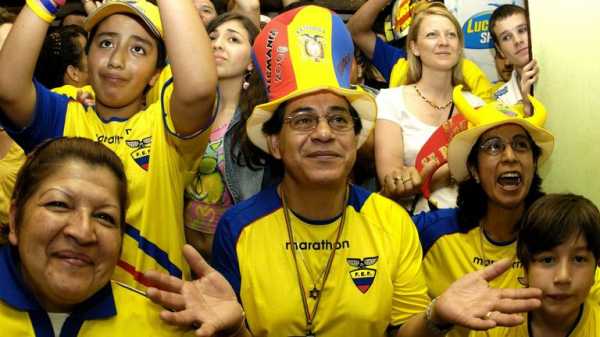
Image: Ecuador will face Qatar, Netherlands and Senegal in Group A
Ecuador secured qualification to the 2022 World Cup back in March but it was not until November, less than two weeks before the start of the tournament, that their place in Qatar was confirmed.
Up until then, the country had been embroiled in a legal wrangle involving defender Byron Castillo, with South American rivals Chile and Peru, who missed out on qualification but hoped to gain a place at Ecuador’s expense, arguing he was ineligible to represent them.
Castillo featured in eight of Ecuador’s qualifying matches but the complaint stemmed from claims that he was born in Tumaco, Colombia, in 1995, and not the Ecuadorian city of General Villamill Playas in 1998, as stated in his official documents.
The case was referred to the Court of Arbitration for Sport, who eventually ruled that Castillo was in fact eligible, even though he was born in Colombia and had used false information about his date and place of birth to obtain an Ecuadorian passport.
Ecuador were hit with a £88,000 fine for using false documents and will start the South American qualifying campaign for the 2026 World Cup with a three-point deduction, but they have arrived in Qatar hoping to seize their chance following the reprieve.
The irony of it all is that Castillo, who plays for Mexican club Leon, has not even been included in head coach Gustavo Alfaro’s 26-man squad for the tournament. Ecuador are keen to move on from the episode, starting in the opening game against hosts Qatar on Sunday. But Castillo’s shadow lingers over their participation.
Should they go further than expected, Chile and Peru might not be the only nations complaining.
Nick Wright
Ghana vs Uruguay: A grudge match for the whole of Africa
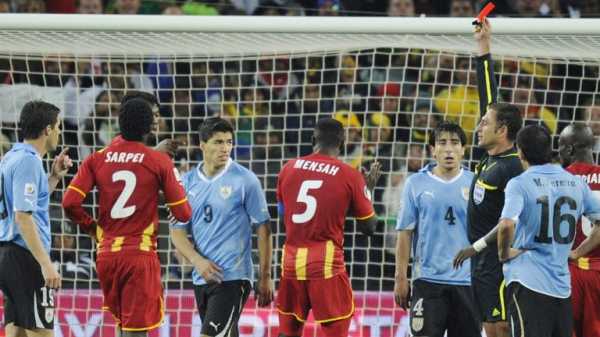
Image: Luis Suarez sees red at the 2010 World Cup
Mark the date: December 2 at 3pm.
On the surface, it may seem just a regular World Cup group game, perhaps even a dead rubber by the time we get to the third matchweek.
Or it could be a potential last-16 shootout, a decider laced in a dozen years of narrative and ill-feeling. When Ghana face Uruguay at the Al Janoub Stadium in Al Wakrah, the Black Stars will aiming for revenge.
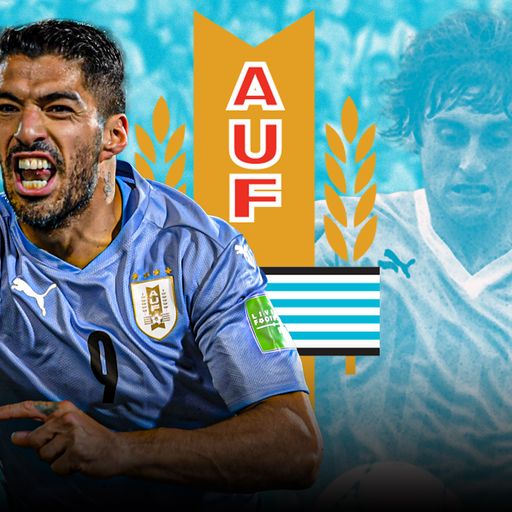
Uruguay's football miracle shows no signs of slowing
How does this country of just three million people still compete? With help from Martin Da Cruz, Adam Bate looks at how a proud history continues to inspire…
Ghana were just a kick away from becoming the first African nation to reach a World Cup semi-final.
They were awarded a penalty when Luis Suarez intentionally handled the ball on the line. Suarez, playing for Ajax at the time, was sent off but Asamoah Gyan missed the ensuing penalty.
Ghana would end up being beaten 4-2 in a dramatic shootout at the Soccer City Stadium in Johannesburg.
Former captain Stephen Appiah recently said in an interview with Al Jazeera: “I get goosebumps when I hear about the 2010 World Cup. It will haunt me for the rest of my life.”
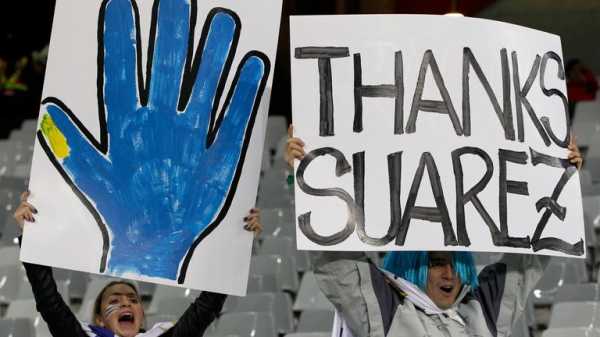
Image: Uruguay fans celebrate Suarez's intervention
Ghana are back on the global stage in Qatar where they will face Uruguay in Group H along with Portugal and South Korea. Rather deliciously, Suarez is still in the Uruguay squad.
It is a chance for a nation to rid themselves of a nightmare that has gripped than for 12 long years. This time around, Ghana interim manager Otto Addo believes his team can make a significant impact at their fourth finals.
Addo, with no previous senior coaching experience, took charge of Ghana in February after the sacking of Milovan Rajevac following their early exit from the Africa Cup of Nations.
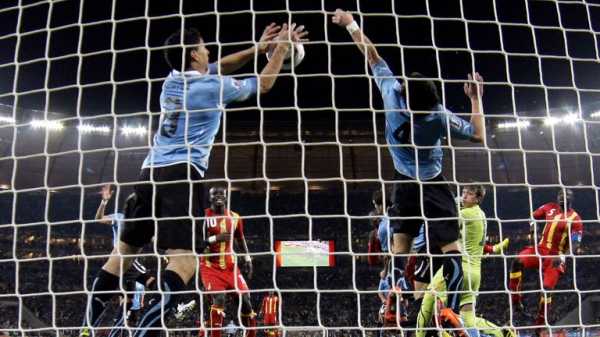
Image: Uruguay beat Ghana on penalties in the quarters
“We can beat anyone. It’s up to the players, not me. It’s their performances that have brought them this far. They have the quality, with or without me,” Addo said.
“I’m responsible for putting them in the right positions so that they can produce their best performances, with and without the ball. They have to be able to play together.”
On the rematch of the controversial quarter-final in 2010, Addo said: “I’m sure that’ll be in the back of the minds of some players because it was a decisive game, not just for Ghana but for Africa as a whole.”
Ben Grounds
- Which clubs dominate World Cup squads?
- 2018 World Cup: Iconic moments from an incredible tournament
- How to win the World Cup: Inside the training camp
The ideal World Cup for Brazil and Argentina?
We have not seen a South American winner of the World Cup in 20 years. Is this the year that changes?
Brazil and Argentina come into the tournament as everyone’s shoo-ins for semi-finalists. Both are many pundits’ picks as favourites.
Both nations have an average squad age of 28.44, hinting at their ability to combine both youth and experience. The European dominance in this tournament could be ending.
Brazil’s attacking options certainly put them right in the reckoning. Behind talisman Neymar are a host of options aged 25 and under including Gabriel Jesus, Richarlison, Vinicius Junior and Raphinha.
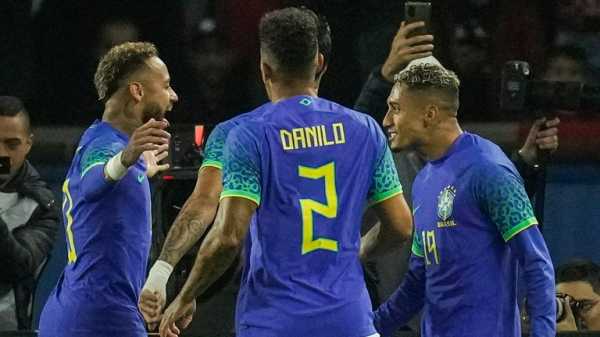
Image: Brazil are one of the favourites to win the World Cup
Argentina, meanwhile, have the experience of being Copa America and Finalissima champions and still have members of the 2014 squad that reached the World Cup final playing in their prime.
They are boosted by the narrative of this likely being Lionel Messi’s final World Cup – the last chance one of the all-time greats has the chance to pick up the prize that defined his mentor Diego Maradona.
Critics of Brazil and Argentina will point at two areas for scepticism that are no longer valid.
First, it is said their knockout-stage downfall is due to a lack of group experience playing against European teams in between tournaments – an argument debunked by the fact that 48 out of the 52 players in both squads all play in Europe.
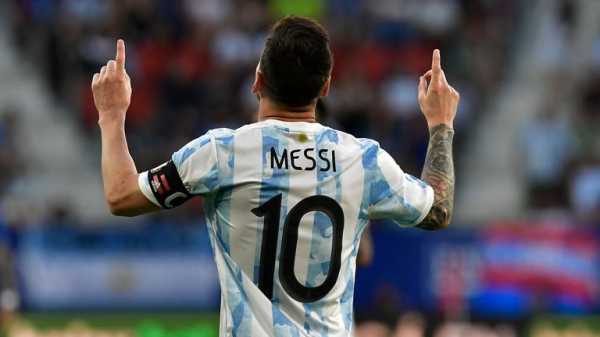
Image: Can Messi win the World Cup at what is likely to be his final attempt?
Then, the age-old issue of having just too many options in their squad – leading to selection headaches for the manager blessed with talent – is unlikely to strike again. The first World Cup with five permitted substitutes allows for this depth to be enhanced.
This could well be the winter of content for two classic World Cup nations.
Sam Blitz
A brotherhood divided: Williams’ representing different nations
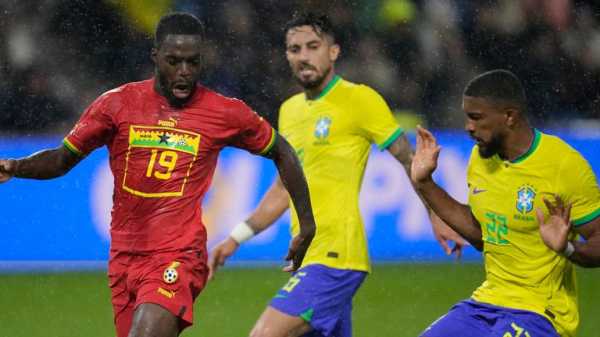
Image: Ghana's Inaki Williams in action against Brazil
Athletic Bilbao brothers Inaki and Nico Williams are set to become the latest siblings to play for different countries at the World Cup.
Younger brother Nico only has two senior caps for Spain but he was called up by Luis Enrique last week. Back in July, Inaki chose to represent Ghana in international football having previously played for Spain.
The 28-year-old, who was born in Bilbao to Ghanaian parents, has played for the Spain U21 side and also made one appearance for the senior team in a friendly against Bosnia and Herzegovina in 2016.
Inaki said in a video posted on social media at the time: “Every step we take forward has its own meaning… a glance into the future which leaves a trace itself. A legacy. My parents have raised me with values based on humility, respect and love.
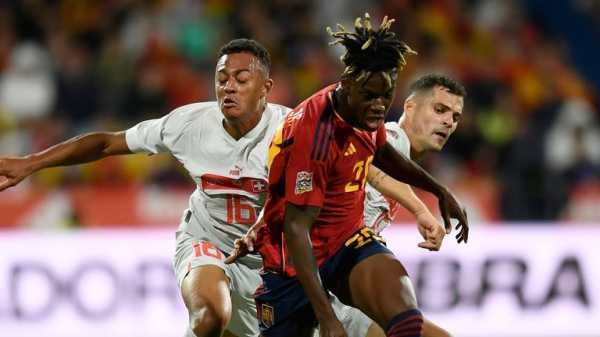
Image: Nico Williams playing for Spain against Switzerland
“That’s why I feel the moment has come for me to find my origins within myself and with Africa and Ghana which means so much to me and my family.”
FIFA rules stipulate that players can switch countries if they have not played more than three matches for a country before the age of 21 and have not featured in a World Cup or continental tournament.
They will be repeating the feat of the Boateng brothers, who played for different nations in 2010 in South Africa and in 2014 in Brazil. Jerome Boateng played at centre-back for Germany, while the older Kevin-Prince Boateng was a midfielder with Ghana.
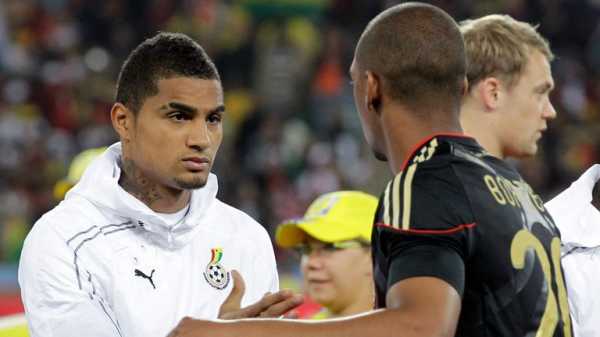
Image: Jerome and Kevin-Prince Boateng faced each other at two World Cups
The Boatengs, who were born to a Ghanaian father but raised by separate mothers in Germany, played against each other in both tournaments.
Inaki, who with 233 games holds the La Liga record for consecutive appearances, could well come up against his brother Nico in the quarter-finals in Qatar.
For that to happen, both would need to qualify from the group stages but with only one as group winners before both overcoming their respective round-of-16 opponents.
Ben Grounds
Third time lucky for Van Gaal?
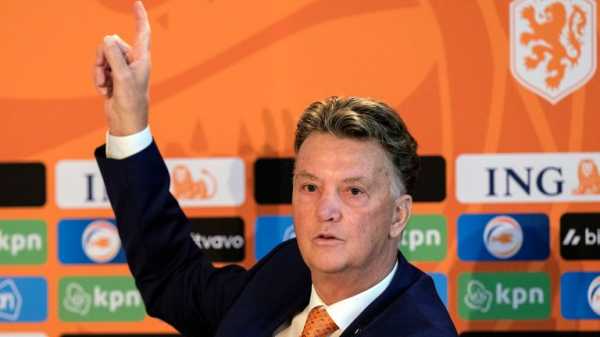
Image: Louis van Gaal is in his third spell as Netherlands head coach but will be replaced by Ronald Koeman after the World Cup
Those chosen to represent their country often speak of the opportunity as being the highest and rarest of honours. For Louis van Gaal, he’s been called on three separate occasions – and that’s just as manager.
Van Gaal previously led the Netherlands between July 2000 and November 2001, before returning to the post for a two-year spell in August 2012, which culminated in him taking his side to the World Cup semi-finals in 2014.
Having not coached for more than five years, Van Gaal returned for a third – and surely final – time in August 2021 and will guide the Netherlands at the 2022 World Cup at the age of 71.
With Ronald Koeman already lined up as his successor, it must be now or never for Van Gaal if he wants to add an international trophy to the plethora of titles he has won in the club game.
A quick glance at Van Gaal’s squad reveals the names of Virgil van Dijk, Matthijs de Ligt, Frenkie de Jong and Memphis Depay – a core of elite talent comparable with any at the tournament.
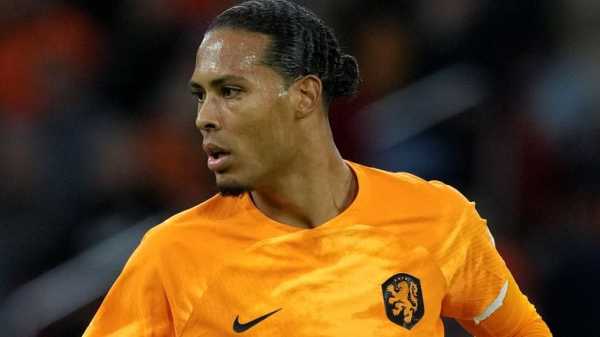
Image: Virgil van Dijk has 49 caps for the Netherlands but has never been to a major tournament
Further quality and experience is provided by Nathan Ake, Stefan de Vrij, Daley Blind and Denzel Dumfries, while a number of talented youngsters – led by Jurrien Timber and Cody Gakpo – mean Van Gaal has an exciting squad at his disposal.
But a closer look at the 26-man roster throws up some surprises. For a start, Van Gaal has called up several players who will be familiar to Premier League fans for all the wrong reasons, including strikers Wout Weghorst (two goals in 20 games for Burnley) and Vincent Janssen (six goals in 42 matches for Tottenham).
Steven Berghuis (Watford), Davy Klaasen (Everton), Maarten de Roon (Middlesbrough), Luuk de Jong (Newcastle) and Steven Bergwijn (Tottenham) are also set to feature in Qatar having bounced back from underwhelming spells in England.
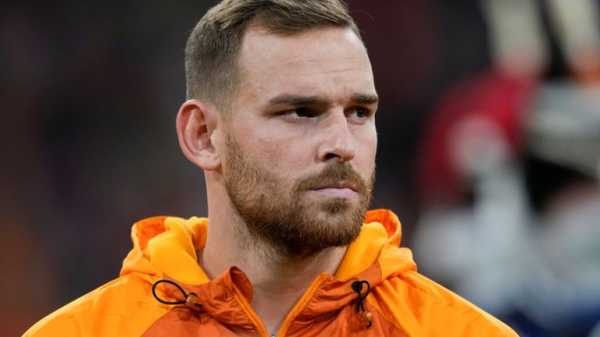
Image: Vincent Janssen flopped at Tottenham but has rebuilt his career in Turkey, Mexico and Belgium
What is more, Van Gaal has also included the uncapped duo of 19-year-old PSV midfielder Xavi Simons and 21-year-old Bayer Leverkusen right-back Jeremie Frimpong, while his three goalkeepers have just eight caps between them.
In fact, the No 1 jersey in Qatar has been handed to Ajax’s Remko Pasveer, who turned 39 this month yet only made his international debut in September.
A notoriously outspoken figure, Van Gaal has always preferred to do things his way – and has often succeeded. After being drawn in a group containing Qatar, Senegal and Ecuador and with Wales, the USA and Iran as potential last-16 opponents, do not be surprised to see the veteran coach and his eclectic squad making another deep run.
Joe Shread
Does glory or controversy await flailing France?
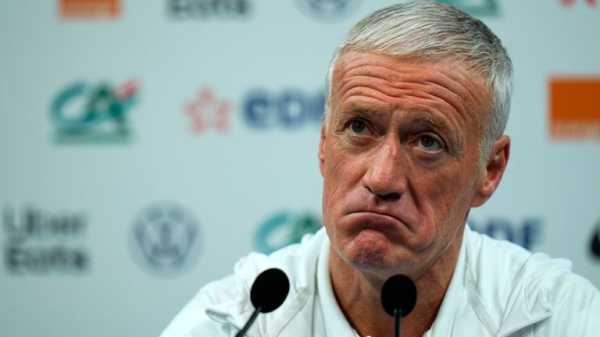
Image: Didier Deschamps led France to victory at the 2018 World Cup
You never know what you are going to get from France at a World Cup. They always deliver star power but bringing that all together has proved rather difficult over the years.
As holders of the World Cup, France are among the favourites for the tournament in Qatar. But after stories of discontent emerged in the squad following an underwhelming Euro 2020 campaign, there is a degree of uncertainty about what to expect from this group. After all, it wouldn’t be the first time internal politics had derailed France at a World Cup.
Even before Euro 2020, Kylian Mbappe and Olivier Giroud fell out when the AC Milan striker suggested France’s star man didn’t pass to him enough in a warm-up game against Bulgaria.
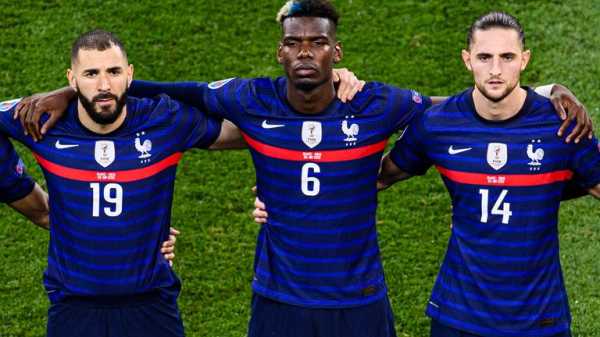
Image: Karim Benzema (left), Paul Pogba (centre) and Adrien Rabiot (right) have all clashed with international team-mates
Giroud was also the target for some critical remarks by Karim Benzema – who has since returned to the France squad – in 2020, when the Real Madrid striker described himself as “Formula 1”, while his team-mate was “go-karting”.
Things eventually boiled over after France’s shock exit to Switzerland in the last 16, when reports said there was a clash in the dressing room between Paul Pogba and Adrien Rabiot, which sparked a further row between Benjamin Pavard and Raphael Varane. The tension even permeated to the families in the stands in Bucharest, where Rabiot’s mother, Veronique, is said to have clashed with the Pogba family.
You do not have to go much further back in time to find more examples of French implosions on the big stage. Going into the 2002 World Cup – again as reigning champions – a pre-tournament injury to Zinedine Zidane helped to derail Roger Lemerre’s side, who exited at the group stage after earning one point and scoring zero goals.
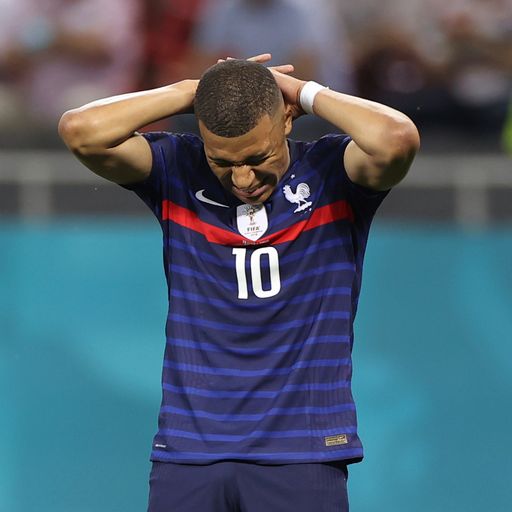
France facing World Cup champions' curse in Qatar
Will France become the latest European World Cup winners to fall victim to the champions' curse?
Even greater embarrassment was caused in 2010 when France again fell at the first hurdle, this time after Nicolas Anelka was sent home for an X-rated outburst at manager Raymond Domenech, which prompted the squad to go on strike during the tournament.
While there is no suggestion a similar fate awaits France in Qatar, the presence of several players to have previously been involved in controversies – including Mbappe, Benzema and Rabiot – means the holders are unlikely to go down quietly should another early exit await them.
The absence of injured duo Pogba and N’Golo Kante, so crucial to glory in 2018, is a huge concern – as is France’s pre-tournament form of one win in six matches.
With so much talent in their star-studded squad yet so many previous examples of collapsing at major tournaments, one thing is for sure – France’s participation at this year’s World Cup will make for fascinating viewing.
Zinny Boswell and Joe Shread

Super 6 Activates International Mode!
Super 6 is going International! Could you win £100,000 for free? Entries by 1pm Monday.
Sourse: skysports.com
